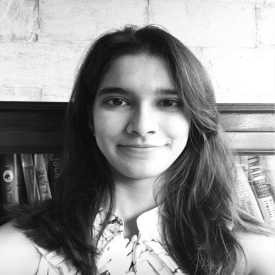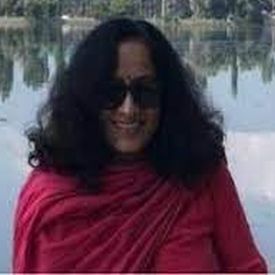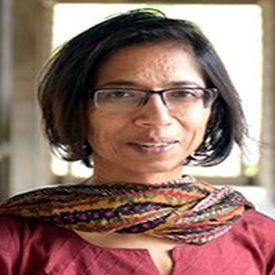The distributional consequences of political reservations
This article identifies and attempts to fill in the gaps in understanding the effects of reservations for Scheduled Castes (SCs) in Panchayats. Using data from a state-wide census, multiple administra...
-
 Chinmaya Kumar
Chinmaya Kumar  M.R. Sharan
M.R. Sharan  28 November, 2023
28 November, 2023
- Articles
Caste-based differences in self-help groups: Evidence from a rural livelihood programme
The National Rural Livelihood Mission aims to increase income and improve wellbeing for rural households. Using survey data from nine states in India, this article analyses the existence of caste-base...
-
 Chandan Jain
Chandan Jain  Krishna Kejriwal
Krishna Kejriwal  Ritwik Sarkar
Ritwik Sarkar  Pooja Sengupta
Pooja Sengupta  05 August, 2022
05 August, 2022
- Articles
India’s Women’s Reservation Act: A big win for governance and beyond
Amidst debates about the recently passed women's reservation act and whether it will reduce gender disparities on the ground, Wattal and Gopalan summarise evidence from a number of randomised evaluati...
-
 Akshara Gopalan
Akshara Gopalan  Urvashi Wattal
Urvashi Wattal  15 December, 2023
15 December, 2023
- Perspectives
A division of labourers: Caste identity and efficiency in India
Castes in India are closely associated with certain occupations and determine the jobs done by millions. This study uses a new dataset to show that a large proportion of workers still work in their ca...
-
 Guilhem Cassan
Guilhem Cassan  Daniel Keniston
Daniel Keniston  Tatjana Kleineberg
Tatjana Kleineberg  18 November, 2022
18 November, 2022
- Articles
Caste-based differences in self-help groups: Evidence from a rural livelihood programme
The National Rural Livelihood Mission aims to increase income and improve wellbeing for rural households. Using survey data from nine states in India, this article analyses the existence of caste-base...
-
 Chandan Jain
Chandan Jain  Krishna Kejriwal
Krishna Kejriwal  Ritwik Sarkar
Ritwik Sarkar  Pooja Sengupta
Pooja Sengupta  05 August, 2022
05 August, 2022
- Articles
'Indian Matchmaking': The marriage market penalty for working women
Despite female education rates rising, India has one of the lowest female labour force participation rates globally. Using data gathered through profiles on Shaadi.com, this article by Diva Dhar estim...
-
 Diva Dhar
Diva Dhar  08 July, 2022
08 July, 2022
- Articles
The psychosocial value of employment: Evidence from a refugee camp
Many of the world’s most vulnerable groups – including refugees –lack access to employment opportunities, which along with the obvious benefit of income generation also produces psychosocial ben...
-
 Reshmaan Hussam
Reshmaan Hussam  Erin M. Kelley
Erin M. Kelley  Gregory Lane
Gregory Lane  Fatima Zahra
Fatima Zahra  20 June, 2022
20 June, 2022
- Articles
Hypergamy violation and domestic violence
Whether violation of hypergamy – when the wife’s economic status equals or exceeds that of her husband’s – increases or decreases domestic violence is a priori ambiguous. Analysing 2015-2016 N...
-
 Gaurav Dhamija
Gaurav Dhamija  Punarjit Roychowdhury
Punarjit Roychowdhury  27 May, 2022
27 May, 2022
- Articles
The impact of displacement on women’s marriage outcomes: Evidence from the partition of India
Women and children are made particularly vulnerable by displacement – the high incidence of gender-based violence and vulnerability to child marriage is well-documented in literature. Using data fro...
-
 Prashant Bharadwaj
Prashant Bharadwaj  Frances Lu
Frances Lu  Sameem Siddiqui
Sameem Siddiqui  09 May, 2022
09 May, 2022
- Articles
Caste inequalities within socio-religious groups: Evidence from Uttar Pradesh
The Mandal Commission and Sachar Committee reports, among others, have indicated the existence of caste inequalities within the four major caste groups. However, data on this subject remain limited. U...
-
 Srinivas Goli
Srinivas Goli  Chhavi Tiwari
Chhavi Tiwari  20 April, 2022
20 April, 2022
- Articles
A signal to end child marriage: Evidence from Bangladesh
Child marriage remains common even where female schooling and employment opportunities have grown. Based on a field study in Bangladesh, this article seeks to experimentally evaluate the impact of a f...
-
 Nina Buchmann
Nina Buchmann  Erica Field
Erica Field  Rachel Glennerster
Rachel Glennerster  Shahana Nazneen
Shahana Nazneen  Xiao Yu Wang
Xiao Yu Wang  04 March, 2022
04 March, 2022
- Articles
Who benefits from indoor piped drinking water supply? A gender analysis
In India, there is limited access to indoor piped drinking water (IPDW) in households, and this has a disproportionate impact on women as they bear the burden of fetching water. Using 2005-2012 India ...
-
 Ashish Sedai
Ashish Sedai  17 January, 2022
17 January, 2022
- Articles
Gender-caste intersectionality in discrimination: Do patients care about doctor’s social identity?
Due to widespread prevalence of discrimination based on social identity, India provides a unique setting for studying caste-gender intersectionality in discrimination. Based on a field experiment in U...
-
 Asad Islam
Asad Islam  Debayan Pakrashi
Debayan Pakrashi  Soubhagya Sahoo
Soubhagya Sahoo  Liang Choon Wang
Liang Choon Wang  Yves Zenou
Yves Zenou  12 January, 2022
12 January, 2022
- Articles
Urbanisation, gender, and social change: Role of the media in shaping women’s political preferences
What is the role of information sources in forming political preferences, and under what conditions do women have the cognitive agency to form political opinions distinct from men? To examine this, us...
-
 Sumitra Badrinathan
Sumitra Badrinathan  Deepaboli Chatterjee
Deepaboli Chatterjee  Devesh Kapur
Devesh Kapur  Neelanjan Sircar
Neelanjan Sircar  10 December, 2021
10 December, 2021
- Perspectives
Urbanisation, gender, and social change: Intra-marital hierarchies and perceptions about working mothers
Women in India spend thrice as much time doing unpaid domestic work compared to the men in their household, and twice as much time on care-giving activities for children and dependent adults. Based on...
-
 Shubhangi Karia
Shubhangi Karia  Tanvi Mehta
Tanvi Mehta  09 December, 2021
09 December, 2021
- Articles
Twitter feed
Tweets by Ideas4IndiaMost Popular Social Identity Posts
A division of labourers: Caste identity and efficiency in India
Castes in India are closely associated with certain occupations and determine the jobs done by millions. This study uses a new dataset to show that a large proportion of workers still work in their ca...
 Guilhem Cassan
Guilhem Cassan  Daniel Keniston
Daniel Keniston  Tatjana Kleineberg
Tatjana Kleineberg  18 November, 2022
18 November, 2022
- Articles
Sex ratios and religion in India and South Asia
In South Asia, low child sex ratios are increasingly an isolated Indian phenomenon. Within India, child sex ratios are ‘normal’ among Christians and Muslims but much lower among Hindus, Sikhs, and...
 Swati Narayan
Swati Narayan  03 April, 2019
03 April, 2019
- Articles
Hindu-Muslim fertility differentials in India: An update
Building on past research, Saswata Ghosh and Pallabi Das estimate the state- and district-level fertility differentials between Hindus and Muslims using data from the latest round of the NFHS. They sh...
 Pallabi Das
Pallabi Das  Saswata Ghosh
Saswata Ghosh  18 April, 2023
18 April, 2023
- Articles





 30 March, 2023
30 March, 2023






